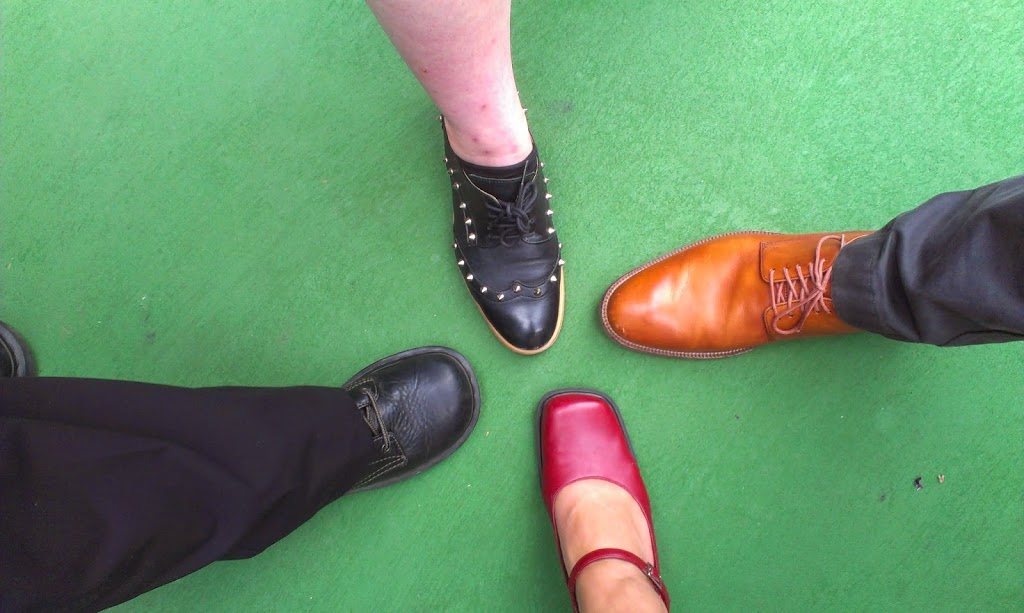
Toronto Image by James Wheeler from Pixabay
Carothers Library URI by Kenneth C. Zirkel https://commons.wikimedia.org/wiki/File:URI_Carothers_Library.jpg Hartford Connecticut Capitol Building Image by Esteban Rodriguez from Pixabay
November is a busy month for me, and I’ve been getting ready (and fussing about it online) for the last while by writing talks and organizing folks. It’s been a while since I’ve been “on tour” and I’m glad to be back into it. So this is me trying to get my head around the upcoming 2 weeks of activity, please bear with me.
First up: The Ethnographic Practice in Industry (EPIC) conference will be in Providence, RI from November 9-12, and I’ve been invited to chair a panel for it. I’m super pleased with our lineup of speakers, and think that our discussion on Monday is going to be fantastic. I also expect I’ll be live-tweeting as much of it as I can at #epiconference.
After that is over I will have to make sure I’ve reserved enough energy to give 2 talks that week. Wednesday November 13th I’ll be at the University of Rhode Island (URI), thanks to the invitation of Karim Boughida. The title of that talk is “Maybe We Shouldn’t Talk About Diversity Anymore”
“Donna Lanclos is an anthropologist and consultant in higher education and libraries, and is, as a white woman, the beneficiary the structural bias in favor of whiteness in libraries, and in academia generally. She wants in this talk to confront the harms done in talking euphemistically about “diversity” when what we should be talking about , professionally and as educators, is about race, and social justice. “
The URI talk is open to the public, so come along if you can:
- 12 noon Wednesday November 13th
- University of Rhode Island Library
- 15 Lippitt Road Kingston, RI
- Galanti Lounge, 3rd floor.
The next day I’m getting to talk at Trinity College, thanks to Jason Jones. The title of that talk is “Who gets to have Agency?”
““Universities and Colleges are increasingly able to use systems to quantify and automate administrative and educational processes. What is at stake when they do this? What is lost? What can happen to students and faculty within these systems, and what are our responsibilities to protect them? Donna Lanclos is an anthropologist and consultant who works with these issues as the conducts research, and helps teams within institutions think about and engage with technology in the course of their teaching, learning, and research work. She points to some ways that qualitative research can be an antidote to some of the problems that arise when we reduce people to datapoints. “
This is also open to the public: Thursday November 14th, 12.15-1.15, Trinity College, Hartford Connecticut, Raether Library , room # LITC 181 https://www.trincoll.edu/Library/
And then the week after that I’m also giving two talks. The first one is for eCampusOntario’s Technology + Education Seminar + Showcase (TESS) November 18-19. eCampusOntario is a non-profit, funded by the province of Ontario, that seeks to advance technology-enabled teaching and learning in Ontario’s 45 publicly funded colleges and universities. Folks who want to learn more about eCampusOntario can sign up for its monthly newsletter.
TESS is an annual event for promoting collaboration and sharing innovations across all eCampusOntario member institutions. This year, Day 1 of TESS features presentations on excellence in online teaching and learning. Day 2 involves cultivating in educators an “experimenter mindset” through some exploration of H5P and Pressbooks.
The theme For TESS this year is Experimentation and Impact. I am pleased that eCampusOntario have invited me, to have the opportunity to finally visit Toronto, and also to be in a room with a new (to me) group of people.. This talk is called “The Anthropologist in the Machine”
“Experimentation and Impact require scrutiny and insight. How do we build space for creativity in teaching and learning in digital contexts while maintaining and supporting current effective practices? Anthropological approaches to digital practices in higher education can be a way to recognize what people in the field are currently doing, and more importantly, why. It is the why that allows us access to the motivations and priorities of the communities in which we teach, the community members who want to learn, and how our practices can and should be bent to meet them, rather than insisting that communities change for educational institutions.
Dr Donna Lanclos is an anthropologist in the the machine; her field sites include education and the digital landscapes it inhabits. Her role in these machines of education and digital is to understand how they work, how people interact within the cogs and wheels of processes and ultimately to ensure that the machine is serving humanity rather than the machine itself. She argues for a move to decenter technology in discussions of teaching and learning–a challenge in a time when colleges and universities are developing new strategies for digital at a prodigious rate. Putting staff under constant pressure to “innovate” in their practice is counterproductive if what we actually need is creativity.”
All of the tickets for this event have now been claimed, but I know the conference will be recorded, including my talk, so I will share it when I can. If you want a preview of the talk, and to hear me chatting with Terry Greene of Gettin’ Air about TESS and other things, check out the podcast site (as of this writing my particular interview is not up yet). And also listen to the other interviews, it’s quite a list.
AND THEN last but not least I get to go to the University of Guelph, (thanks to the invitation of Karen Nicholson and suggestion by Ali Verslius) and speak to folks there.
Gaining Insight Over Fixing Problems: How Open-Ended Research Can Teach Us What We Need to Know
Donna Lanclos, researcher, speaker, writer, and anthropologist will be at U of G to deliver a talk about open-ended ethnography and relationship-building as an antidote to being “ethnographish,” surveillance, and quantification in higher education.
Date: Wednesday, November 20, 2019, Time: 1:15 to 2:30 p.m. , Location: U of Guelph LIB Room 246A
So now “all I have to do is pack,” and remember my travel docs and passport! I hope to see many of you soon.


